The Editors at Broadsided Press write:

We have, according to the constitution, the right “to keep and bear arms” in the United States. But how, in the wake of Las Vegas, Pulse, Sandy Hook, Trayvon Martin, and other abuses of firearms—by citizens and in some cases by those trained to protect and serve—do we bear that right? How do we bear it?
At Broadsided, we believe that art and literature belong in our daily lives. They inspire and demonstrate the vitality and depth of our connection with the world. We had to speak out—we had to make a space for you to speak out—on this issue as part of our ongoing “Broadsided Responds” feature.
We put out a call to visual artists asking for submissions. Work came from all over the country, in all media. Powerful, provocative, dynamic work. Guest Arts Editor Stacy Isenbarger selected six pieces that offer a range of attitudes, aesthetics, and opportunities. Of her decision, Stacy has this to say:
How do we confront that of which we already hold tightly? Collectively, these chosen works offer a dimensional conversation of this weighted issue. Some may suggest a boundary of societal judgement, but they don’t necessarily reveal what side they are one. Instead these pieces offer evolving space. They welcome an opportunity for viewers to discuss how we bear that which touches our lives.
We now ask you to respond with words to six works of visual art by Sandra Cohen, Jonathan Frey, David Kamm, Osceola Refetoff, Dixie Salazar, and Kristen Woodward.
See full images and guidelines here.
When you submit your writing, be sure to be clear as to which piece you are responding.
DEADLINE: December 27, 2017.

 Write Prize for Fiction
Write Prize for Fiction
 Poetry
Poetry Intellectual Freedom Blog
Intellectual Freedom Blog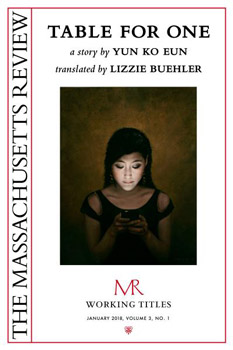 Readers may already be familiar with The Massachusetts Review, the quarterly print journal founded in 1959, but did you know they also have
Readers may already be familiar with The Massachusetts Review, the quarterly print journal founded in 1959, but did you know they also have 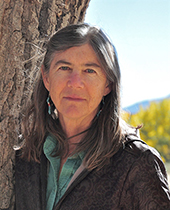 We used to play, long before we bought real houses.
We used to play, long before we bought real houses.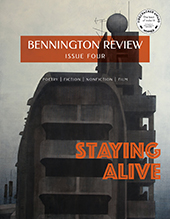 I was relieved to see it wasn’t just me who heard the Bee Gees in my head when I saw the cover of
I was relieved to see it wasn’t just me who heard the Bee Gees in my head when I saw the cover of  In addition to its regular content of ‘extremely brief’ (under 750 words) nonfiction,
In addition to its regular content of ‘extremely brief’ (under 750 words) nonfiction,  In “
In “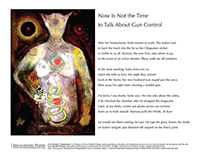 “
“ First Prize
First Prize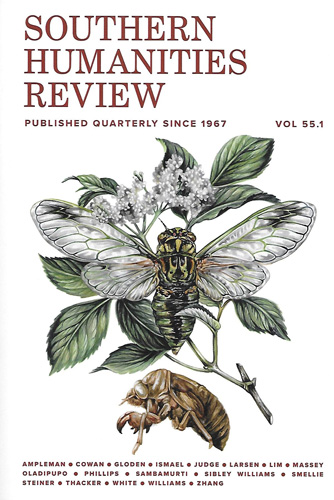
 Published by the Department of English and the School of Humanities and Social Sciences at the College of Charleston, the cover image of
Published by the Department of English and the School of Humanities and Social Sciences at the College of Charleston, the cover image of  The fish are drifting calmly in their tank
The fish are drifting calmly in their tank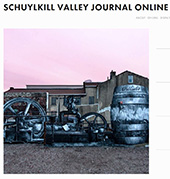 The fall 2017 print issue of
The fall 2017 print issue of  1st place goes to Maxime Kawawa-Beaudan [Photo credit: Scott McCrae] of Berkeley, California, who wins $2500 for “Waiting for Fireworks.” His story will be published in Issue 102 of Glimmer Train Stories. This will be his first major print publication.
1st place goes to Maxime Kawawa-Beaudan [Photo credit: Scott McCrae] of Berkeley, California, who wins $2500 for “Waiting for Fireworks.” His story will be published in Issue 102 of Glimmer Train Stories. This will be his first major print publication.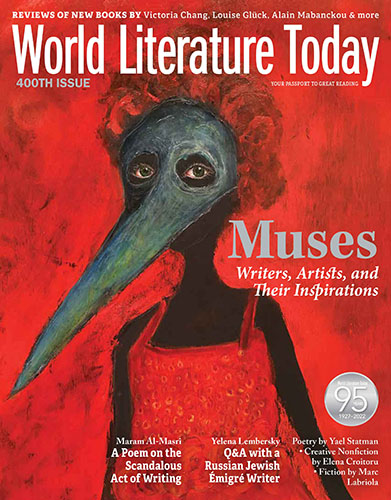 In these turbulent times, we can’t help but wonder just exactly how words do matter, in the sense of “for good” instead of what we see so much of bandied about in terms of knee-jerk thoughtlessness.
In these turbulent times, we can’t help but wonder just exactly how words do matter, in the sense of “for good” instead of what we see so much of bandied about in terms of knee-jerk thoughtlessness. 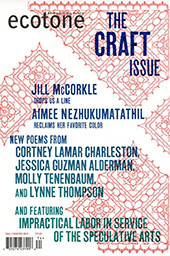
 In a double issue (Fall 2017/Winter 2018),
In a double issue (Fall 2017/Winter 2018), 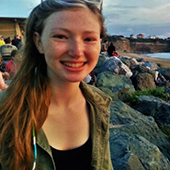
 Poetry Winner
Poetry Winner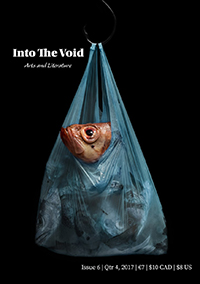 “The Cowards” by French photographer
“The Cowards” by French photographer 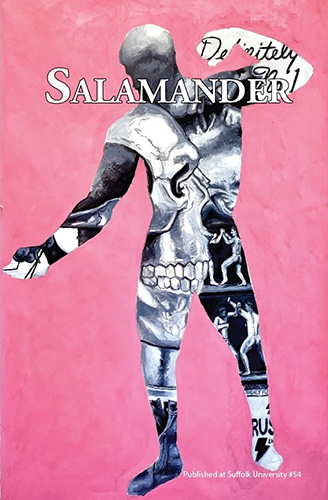

 The
The  First Place
First Place